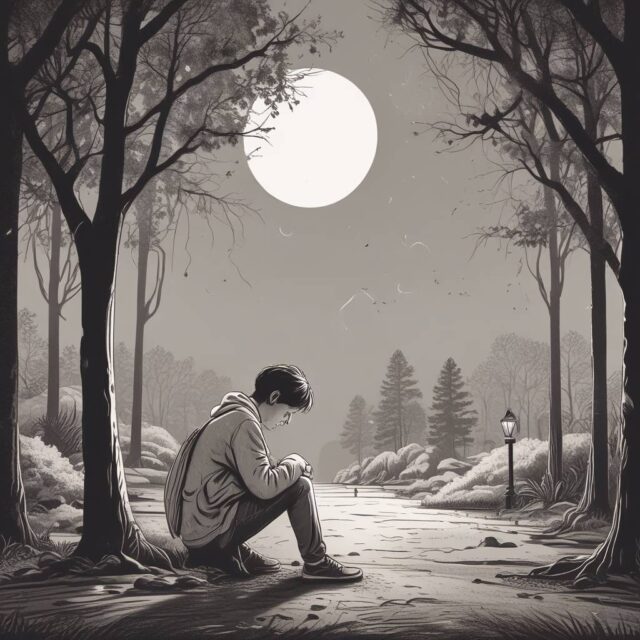In the whirlwind of academic pressures, social expectations, and personal challenges, many students silently battle with a formidable opponent: it is a well known fact at present that the most frequently diagnosed disease in developed societies is hidden depression. Just as expository type revolves around the overt display, the covert android magma is covered usual by false normalcy and people it surrounding often see no reason to find it. Nevertheless, it can be even very great to make the academic performance lower, social relations be harmed and in addition the overall well-being suffer. Development of hidden depression in students is the area of primary concern since it requires a time of utilization of resources and education of students with the perspective to create the environment of well-being.
The depressive state that is concealed under the layers of happy, successful, and nonchalant characteristics is called hidden depression or smiling depression and is marked by the capability to smile and stay happy on the outside, while secretly feeling emptiness, sorrow, and hopelessness on the inside. Students coping with a hidden or secret depression put all their energy into academics, join clubs and activities, and are on the social side of life, and thereby it’s hard for others to see what they are feeling downstairs. Being in such environments, students may find themselves in an unsavable situation where they are shared in these problems and might not know what to do when they are faced with such issues.
One the most representative sign of hidden depression is the ability of students which hides their emotional difficulty. It is possible for them to be using funny of those they encounter but as a defense mechanism – a way of diverting the focus from their own issues with quick jokes or happy demeanor. In a similar manner, the individuals involved might also bury themselves within academic or extracurricular pursuits using achievement as an elusion of the emotional torment. It is behind these appearances they enact that they get to cover their suffrage as well as the false belief of the society that they are beyond mental challenges.
The excessive workloads created by the struggle to succeed academically, as well the expectation of the society on outstanding performance, intensify the concealed depression of the students. Given the academic environment that is based on achievement and performance, students develop a false idea of success, which becomes a criterion for their self-worth vis á vis the grades they receive. As a result of this, they can easily rachet up on the constant pushing, and sometimes they end up pushing themselves to the extremes without considering their mental and emotional well-being. The fear of failure becomes like a monstrous shadow, which clings tirelessly to them, causing them to continue portraying their sheer capability even as they find themselves grappling with issues such as incompetence, lack of self-confidence, and self-doubt.
As well, a crowd of the people considering mental disorders as something disgraceful could be one of the biggest hindrances on the road to the overcoming of hidden depression. Some students may experience anxiety and shame as they avoid disclosure and instead keep quiet about their issues in the hope that no one would know these problems exist or think of them that way. After that, they can go to war with themselves and might have the darkest side of their mind all alone, without any support. Many educational institutions still lack specific policies addressing the stigma towards mental disorders, which the silent nature of this problem only helps in communicating this neglect, ultimately isolating students from seeking help.
Revelations of these consequences is not only about school performance, but beyond the classroom, the depression invades the young lives. Possibly, relation ship will fell asleep because they do not want to be found out that they real self. All these things may happen to them and they might not be able to mend their social relations, that is, friendships and romantic relationships. Also, they may be disconnected from their peers and not be able to relate to their experiences. In addition to that, depression occurring as a result of years or ivory tower education can conduct to many health problems such as tiredness, sleeping issues, or unwillingness to eat.
Fighting student hidden depression demands a multiprongded action plan incorporating personal care and systemic initiative within both Secondary and tertiary learning centers. On the top rank should we put increasing awareness to depression that is often unnoticed or silenced in fields of mental health discussions for students to speak out and get the help they need. In order to do that effectively, educational institutions should organize mental health education programs, set up counseling services and help build a compassionate, tolerant community.
Besides, the teachers and the school staff are the ones who ought to have the discernment and should come up with the intervention to students with the hidden depression. Talking faculty and staff about the signs and symptoms so that they are able to recognize them and encourage also for appropiate and early intervention and resources for support is the catch of hidden depressions which turns to intervention and early detection. In addition to access to resources and trained counselors, student leaders can also help build pathways for open communication and conversation about mental health that can remove hindrances and encourage them to seek the needed help.
At an individual level, self-awareness and self-nurse is a very simple but powerful weapon to battle hidden depression. The students for their part learn about appropriate ways of dealing with the problem like practising meditation, doing some breathing exercises, and utilizing social support from people they trust. Improving goals of reality and boundaries of self, including the ones that help us to feel better and healthy are more than important in keeping hidden depression from the person and promoting good mental health.
At the end, the unnoticed depression among students is a catastrophic but generally neglected phenomenon regarding its impact on the educational performance and physical condition. Through raising awareness, encouraging conversations and taking actions with the purpose to put in the place support systems, we are able to foster a more compassionate and inclusive education in the community where students feel so empowered that they’re not afraid to ask for help. However, nothing can be done if only the mental problems that are evident are taken into account. Students’ mental hygiene should be promoted as well as academic outcome.












